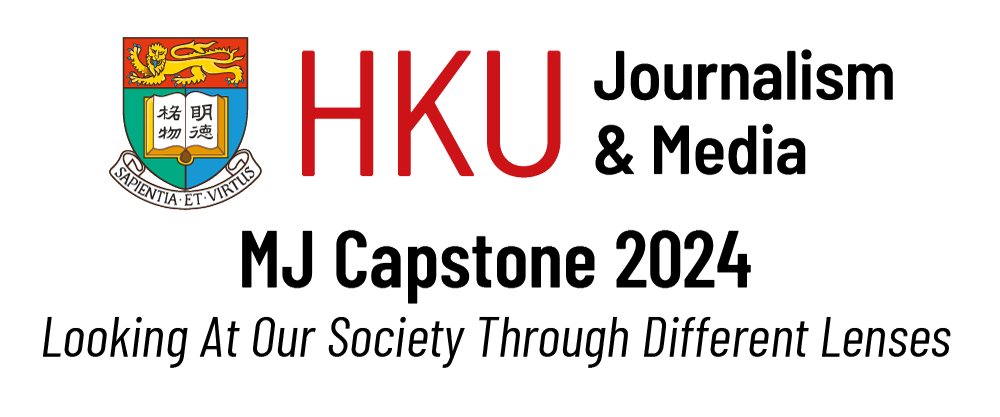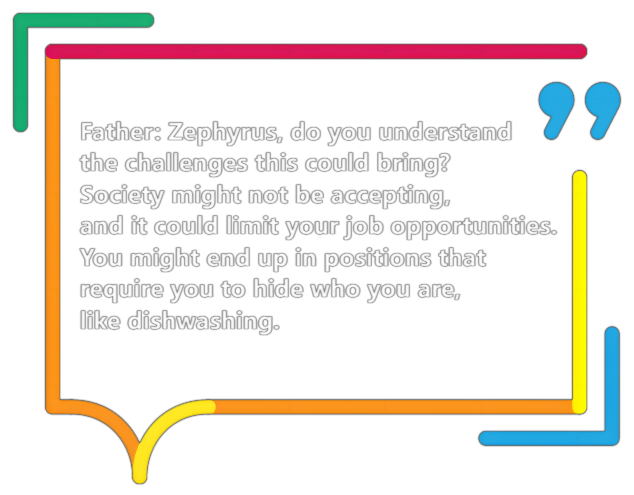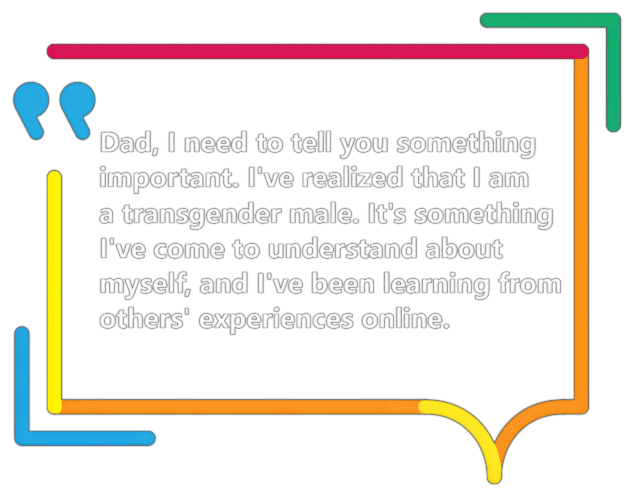For transgender individuals, the pursuit of a body that aligns with their gender identity is an endless journey.
Each person has unique goals and standards for what they feel is right for their body. But at the very least, I am now satisfied with my own body.
“Transgender people are just like everyone else, not living in misery. If you ask me, the biggest challenge of being a transgender advocate might just be the endless work and late nights, haha,” says Zephyrus with a light-hearted tone.
At 29, he is the co-founder of Quarks, Hong Kong’s first organization dedicated to transgender youth.
However, when speaking of his adolescence, Zephyrus’s expression turns somber.
“The physical dysphoria was like being drenched in a downpour and then having to sit soaked to the skin;, every second was torturous,” he said.
In middle school, Zephyrus was treated as a girl, and the development of his breasts triggered his first gender dysphoria. But at that time, he was unaware of the concepts of transgender and gender diversity, carrying only a confused sense of anxiety. He recalls avoiding looking at the mirror during puberty because he felt his body did not belong to him.
“Even when waiting for the subway, although the reflection wasn’t clear, I hated the silhouette I saw,” he said.
As a result, he spoke with a lowered voice, walked roughly, and subconsciously hunched to make his chest protrude as little as possible.
“If there was a strong wind while walking quickly, I would constantly adjust my shirt so that it wouldn’t cling to my body.”
A turning point occurred during a school play, where Zephyrus experienced the role of a male character for the first time.
“It wasn’t the male lead Romeo, but Juliet’s father,” Zephyrus says with a laugh. “When I existed as a male character, I felt an unprecedented comfort and naturalness, and that’s when I began to vaguely wonder if maybe I was actually a boy.”
After the play, Zephyrus started binding his chest. Although this meant he no longer feared the wind blowing as he walked, during that period, he repeatedly had a dream in which he was wearing a binder and playing on the streets, and when he suddenly saw his mother in the distance, he was so frightened that he immediately turned and ran away.
It was not until the age of 18 that Zephyrus first realized he was a transgender male when he saw an interview about transgender individuals on television for the first time.
Anxiety and aversion towards his body have severely impacted Zephyrus’ daily life and even his studies, with his desire to change his body growing stronger. On his 18th birthday, Zephyrus got a buzz cut, but during a dinner out with his parents, his father harshly criticized his appearance, remarked that he looked like a reformed convict from prison, and refused to accompany him.
The harsh scolding from his father made Zephyrus feel that it was crucial to reveal thetruth that he was a transgender man to his parents, yet he was not fully prepared for such a confession and sought the experiences of other transgender individuals online.
“They feel as though they have lost a daughter,” Zephyrus expressed.
Gathering courage, he disclosed to his parents his transgender identity and his intention to pursue gender-affirming healthcare services.




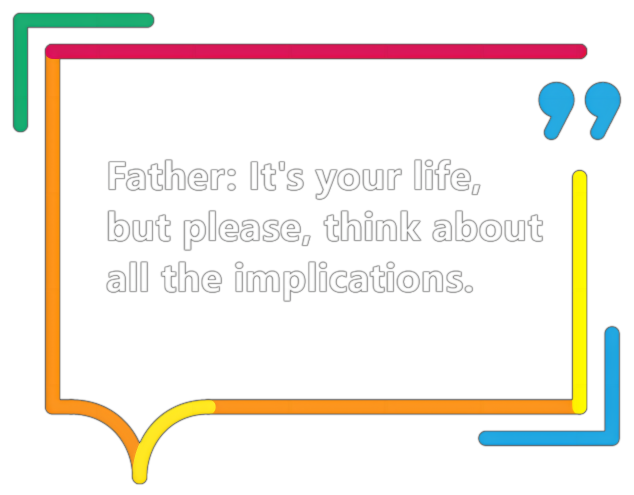


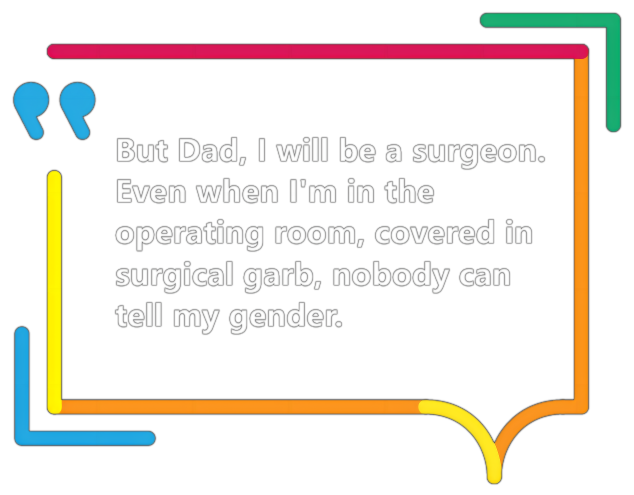

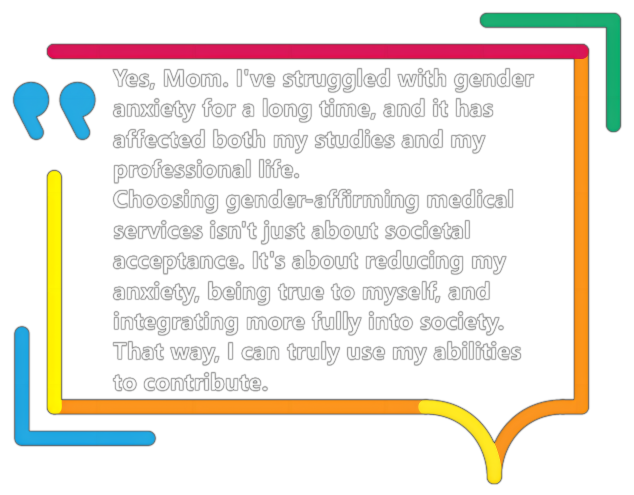


His parents cautioned him about the harsh realities of society’s lack of acceptance and the limited job opportunities that might be open to him, suggesting he might only find employment in roles that hid his identity, such as dishwashing. Zephyrus responded with a laugh.
“When I was a surgeon, and even in the operating theatre, clad in surgical garb, my gender remains indiscernible,” he told them.
“Gender dysphoria has already taken a toll on my studies and professional life,” Zephyrus stated.
“Choosing gender-affirming healthcare services is not about facing societal rejection; it’s about alleviating my dysphoria, aligning with my true self, and contributing to society,” he said.
Despite his parents’ opposition, Zephyrus decided to embark on his journey of gender transition.
Transgender individuals who wish for gender-affirming healthcare services typically require an initial psychiatric consultation for their first visit. Zephyrus had his consultation at the Gender Identity Clinic (GIC) at Prince of Wales Hospital. During this process, the doctor discussed with him gender identity and expectations for his gender transition. Following a referral letter from the psychiatrist, Zephyrus proceeded to gender-affirming hormone therapy.
On 14 July 2018, under the guidance of his doctor, he began using male hormone medication. Zephyrus regards this day as his rebirth and eagerly shared his gender transition with those around him.
But the process of gender transition is a mix of joy and awkwardness. The effects of hormone therapy can take one to six months to manifest, and during this transition, Zephyrus faced confusion and self-doubt about his gender expression, feeling neither entirely male nor female.
Zephyrus’s first visit to a men’s restroom was with the support of a male friend. By then, Zephyrus’s appearance had already changed significantly, and his attire was entirely masculine.
However, he was still afraid of being recognized as female in the men’s restroom. He shared these fears with his male friend, who reassured him that he already looked like a man and should not worry. This friend then accompanied him during his first visit to a men’s restroom.
“The most important thing about my gender identity as a transgender person is my relationship with myself,” Zephyrus said.
From then on, he knew he did not have to worry about whether others saw him as a man or a woman and lived in society as a man, following his own heart.
During this phase of gender transition, Zephyrus’s parents underwent significant changes as well. Initially completely opposed to the use of medications, they gradually shifted to researching the safety and side effects of these drugs alongside their child. Eventually, they accompanied Zephyrus to the hospital for hormone injections.
“They slowly came to accept that they now have a son,” Zephyrus said.
By clicking on the four buttons below, you can learn more about the specifics of Gender-Affirming Healthcare.
Gender-affirming healthcare has been available in Hong Kong since 1980, marking 44 years of its presence. However, awareness of these services remains surprisingly low.
“Almost no one knows about gender-affirming healthcare services, whether they are transgender individuals, their friends and family, or medical professionals,” says Zephyrus.

Justin Chu, an independent sex educator, believes that the lack of education about gender-affirming healthcare exacerbates health disparities among different groups. Transgender individuals, in particular, may struggle to make informed health decisions due to a lack of relevant healthcare information. This gap in knowledge can lead to increased psychological stress and anxiety, leaving many feeling isolated and confused. Despite these challenges, there are accessible care options and methods available to support them.
The following link leads to Justin’ s personal web page.
https://campsite.bio/hotingchu
Zephyrus has encountered many other transgender individuals seeking information about gender-affirming healthcare in Hong Kong. Observing the commonality in their queries, Zephyrus decided to establish the first youth organization for transgender individuals in Hong Kong – Quarks. This organization aims to create a space where young transgender people can interact and support each other.
The following figure is a popular science material on gender from Quarks.
Through social media platforms like Instagram, Quarks educates the public about gender-affirming healthcare and hosts live discussions and offline events to spread awareness. Zephyrus mentions that some transgender individuals who follow their content have expressed newfound confidence in their gender transition journey.
“They realized that obtaining a doctor’s prescription isn’t difficult, and they feel more informed about the risks and benefits of different surgeries, enabling them to make wiser healthcare decisions,” Zephyrus says. “They are no longer facing these challenges alone but have a community of people with similar experiences to listen, support, and offer advice.”
Zephyrus says he’s glad that his group has made significant efforts to help more people understand gender transition and that transgender individuals may have differences from straight people, but these are not insurmountable barriers.
“I hope to enhance communication between different communities, showing that transgender individuals live and contribute to society just like everyone else,” Zephyrus says with a smile.
Pictures are provided by Zephyrus and Justin
Flora Ni
Coco Zhang
Advisor: Foon Lee
